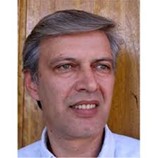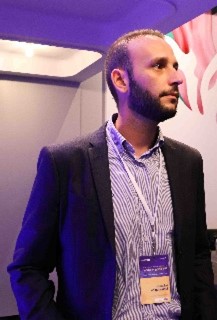DESCRIPTION
AI tools like ChatGPT are transforming the way we engage with knowledge and learning processes. Cognitive tools—applications that function as intellectual partners—have the potential to significantly enhance critical thinking, problem solving, and the development of advanced knowledge and skills. By leveraging these tools, learners can represent their ideas, organise knowledge, and build conceptual frameworks that support deeper analysis and understanding. This interactive tutorial will explore the potential of ChatGPT as a (meta-)cognitive tool, focusing on how it can empower learners to extend their intellectual reach. Participants will engage in a hands-on, simulation-based experience where ChatGPT serves as an intellectual partner at each stage of the learning process: from initial exploration and comprehension, through experimentation, critical evaluation, and ultimately, the construction and expansion of knowledge. Through guided exercises, attendees will discover how AI tools can support complex cognitive tasks, foster creativity, and strengthen high order thinking skills. The tutorial will emphasise experiential learning, encouraging participants to actively work with ChatGPT to approach one of their learning objectives, generate insights, and synthesise information. By the end of the session, participants will gain practical strategies contributing to their AI literacy adapted for their own learning processes.
DETAILS
Course type: Short course
Duration: One day of approximately 8 hours
Institution of lecturers: Aristotle University of Thessaloniki
Notes: There will be no exams. However, we foresee an initial (diagnostic) self-assessment to gauge participants’ understanding of AI tools and cognitive tools, as well as their expectations from the session. Moreover, there will be summative assessment at the end of the session, in which participants will be asked to provide feedback on each other’s work to using ChatGPT based on a rubric that will be developed.
LECTURERS
Prof. Dr Konstantinos Bikos
 Prof. Dr Konstantinos Bikos (male) is Professor of Education and New Technologies, at the School of Philosophy and Education, at the Aristotle University of Thessaloniki. For the last thirty years, he has divided his teaching and research activities between topics of general pedagogical interest and the pedagogical reflection that concerns both the education and training of teachers for the didactic use of ICT, but also in the research evaluation of educational implications of ICT. He has a long experience in initial teacher education and continuous training and has served, from 2004 until 2014, as the Director of the 2nd Regional Training Center (RTC) of Thessaloniki. He is the director of the Laboratory “Microteaching and New Media”, while his relevant published work includes one German-language and five Greek-language books, nineteen Greek-language and nineteen foreign-language articles. He has been the scientific supervisor of three relevant research-educational programs funded by EPEAEK. He served as the Director of the School of Philosophy and Education for four years and as the Dean of the School of Philosophy for the last three years.
Prof. Dr Konstantinos Bikos (male) is Professor of Education and New Technologies, at the School of Philosophy and Education, at the Aristotle University of Thessaloniki. For the last thirty years, he has divided his teaching and research activities between topics of general pedagogical interest and the pedagogical reflection that concerns both the education and training of teachers for the didactic use of ICT, but also in the research evaluation of educational implications of ICT. He has a long experience in initial teacher education and continuous training and has served, from 2004 until 2014, as the Director of the 2nd Regional Training Center (RTC) of Thessaloniki. He is the director of the Laboratory “Microteaching and New Media”, while his relevant published work includes one German-language and five Greek-language books, nineteen Greek-language and nineteen foreign-language articles. He has been the scientific supervisor of three relevant research-educational programs funded by EPEAEK. He served as the Director of the School of Philosophy and Education for four years and as the Dean of the School of Philosophy for the last three years.
Dr. Nikolaos Mouratoglou
 Nikolaos Mouratoglou holds a Doctorate from the Aristotle University of Thessaloniki. His dissertation focused on the use of ICT as cognitive tools and their impact on learner’s skillset and cognitive load. He is adjunct Lecturer at the Department of Educational Sciences (University of Athens) and the Department of Social and Behavioural Sciences (European University of Cyprus), specialising in digital education, teacher training and counselling. His has (co-)authored more than 50 publications in (inter-national) scientific journals and conferences and has collaborated with national, European and international organisations, universities and Ministries on projects related to teachers’ professional development, vocational education and training, AI and digital transformation, skills development and employability. He is currently the Pedagogical and Monitoring Coordinator of the European Commission’s eTwinning and the European School Education Platform.
Nikolaos Mouratoglou holds a Doctorate from the Aristotle University of Thessaloniki. His dissertation focused on the use of ICT as cognitive tools and their impact on learner’s skillset and cognitive load. He is adjunct Lecturer at the Department of Educational Sciences (University of Athens) and the Department of Social and Behavioural Sciences (European University of Cyprus), specialising in digital education, teacher training and counselling. His has (co-)authored more than 50 publications in (inter-national) scientific journals and conferences and has collaborated with national, European and international organisations, universities and Ministries on projects related to teachers’ professional development, vocational education and training, AI and digital transformation, skills development and employability. He is currently the Pedagogical and Monitoring Coordinator of the European Commission’s eTwinning and the European School Education Platform.
